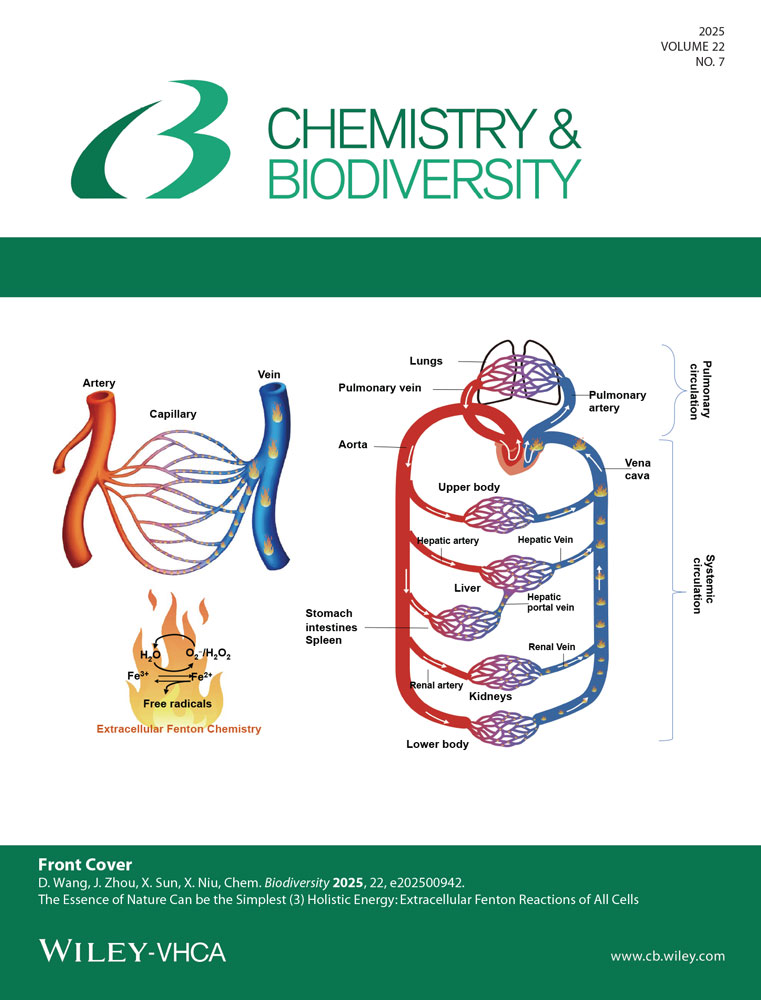Cytotoxic Cardenolides from Streptocaulon griffithii
Abstract
A new cardenolide, 3-O-(β-glucopyranosyl)acovenosigenin A (1), was isolated from the roots of Streptocaulon griffithii, together with eight known cardenolides, compounds 2–9. All compounds showed significant in vitro inhibition of the proliferation of the human gastrointestinal cancer cell line HGC-27, with IC50 values in the range of ca. 20–564 nM, taxol being used as positive control. Compound 1 was also found to be strongly cytotoxic against other human tumor cell lines, including A549, MCF-7, and Hela cells.




